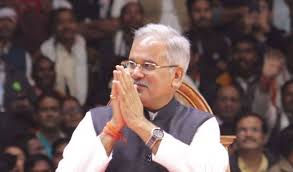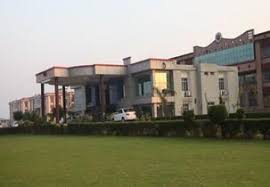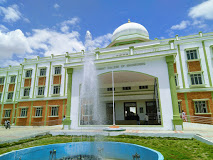
Chhattisgarh Chief Minister Bhupesh Baghel announced an increase in reservations for OBC and SC in state government jobs and education.
Daily Current Affairs Quiz 2019
Baghel said the government will increase the quota for Scheduled Castes by one per cent while nearly doubling reservation for OBCs from 14 per cent to 27 per cent. The quota for Scheduled Tribes remains at 32 per cent.
Once in effect, it will mean Chhattisgarh will have a total of 72 per cent reservation, the highest in the country and far above the 50 per cent cap on quotas mandated by the Supreme Court.
In his Independence Day speech in Raipur, Baghel said, “I am very happy to say that in our state, Scheduled Castes, Scheduled Tribes, and Other Backward Classes have been raising their demands in a peaceful manner for a long time. It is our duty to protect their Constitution given rights. In a big step towards that, today, I announce that in the state, that 32 per cent for STs, 13 per cent for SCs and 27 per cent reservation will be given to OBCs.”
Last week, Baghel had told a district-level programme that the government intended to raise the quota for SCs to keep it in line with the population demographic in the state. With 12.8 per cent of the population being Scheduled Castes, the reservation has been increased by one per cent.
But senior government officials also said that this was the justification for the major jump in OBC reservation, and would also form their basis for any forthcoming legal challenges, given the 50 per cent cap by the Supreme Court.
“The question of the cap by the Supreme Court is a complicated issue. It is not that states have not exceeded that. Look for example at Haryana, Maharashtra and Tamil Nadu. Each state is unique on this issue. We are prepared for any legal challenge. But in our state which is unique, the percentage of OBCs is close to 47 per cent, who along with STs form the major chunk of the population. Why should they be short-changed with only 14 per cent reservation? This has been a demand of OBC groups for well over a decade,” said a senior government official.
The “unique” nature of the state is also why, officials said, the state government is still considering the 10 per cent centre mandated EWS quota for the general category. “It is true, if implemented, it would take the reservation to 82 per cent. But we have to look at the interests of our state. We are studying the proposal closely. But what if the percentage of general category people that would qualify under EWS is less than 10 per cent in the state? Would that not take away a seat from a poor tribal, or an OBC?” said another senior official.
The move also has a clear political dividend for the Congress, looking to reassert itself after a chastening defeat in the Lok Sabha polls. Chief Minister Baghel, a Kurmi, is an OBC face for the Congress.
And while the OBC votes are a traditional BJP bastion, some sections had shifted to the Congress during the Assembly elections in 2018, only to seemingly move back to the BJP during the Lok Sabha polls. “This move will cement Baghel, and the Congress, as someone who has listened to a long-standing demand,” said a senior Congress leader.
Taran Prakash Singh, Secretary, DPR, for the Chhattisgarh government said that with the Chief Minister’s announcement, the move is “as good as done”. “The method this will be done is either through passage in the Vidhan Sabha, or through an ordinance,” he said.
In another move with political significance, Baghel also announced the creation of a 28th district in the state, announcing that the “Gaurela-Pendra-Marwahi” area would now be a district, carved out of Bilaspur district.
The move is significant because the region is considered the bastion of former Chhattisgarh Chief Minister with the Congress and now founder of the JCCJ Ajit Jogi and his family. Incidentally, the Jogis congratulated Baghel for both moves, and said that they had made these exact demands of the Chief Minister when they met him in December 2018, shortly after he took office.
In two other announcements, Baghel said that an “elephant sanctuary” called the Lemru Elephant Reserve would be created in Korba district, and that a scheme to give free nutritious food every day to those malnourished or anaemic would be extended to the entire state.





